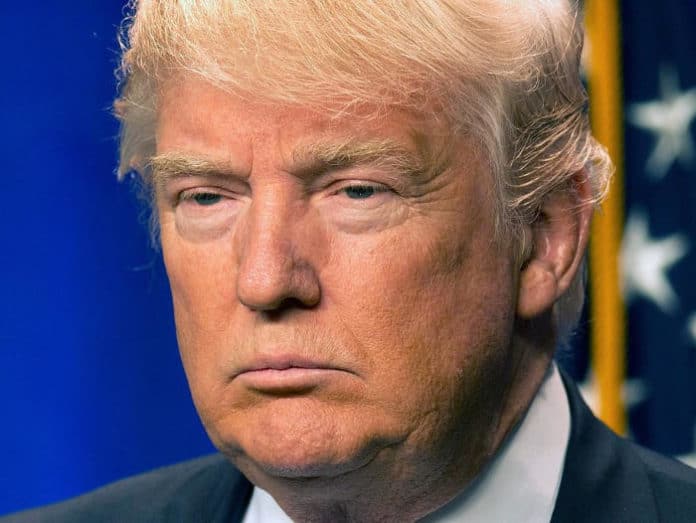Don’t do it!
That’s the word Black community and political leaders have for President Trump on the subject of his Oklahoma campaign rally planned for Juneteenth. Holding the rally on the day that marks the end of slavery in America, they argue, is a “slap in the face.” It’s another disappointing episode in the presidency of Donald
“You’re Fired” Trump.
It is no coincidence that this day and place were chosen. Trump has vigorously and repeatedly condemned those protesting the widespread killing of unarmed black men and women by police. On Trump’s chosen place and date– Tulsa, OK on June 19, 1921– whites, in an orchestrated white-on-black attack, rioted and burned down the community known as Black Wall Street. There is as much symbolism attached to Trump’s rally for his supporters as there is to the significance of the burning of Black Wall Street to blacks.
Curiously, Trump campaign staffers saw Juneteenth as an opportunity to tout the president’s record of “achievement” among black Americans. And for some blacks– like those Trump staffers make sure are always seen sitting behind him during his rallies– Trump’s simply saying it makes it so. Not for the rest of us.
In point of fact, according to Gallup, only 10 percent of Blacks approve of Trump’s job performance. This is a continuing source of frustration to the president– and for his black supporters. Remember the tweet he posted back in September of 2018?
“So if African-American unemployment is now at the lowest number in history, median income the highest, and you then add all of the other things I have done, how do Democrats, who have done NOTHING for African-Americans but TALK, win the Black Vote? . . . .”
Why? Maybe because of his wink-and-nod affair with both open and closet racists.
Trump speaks to Black people as though we don’t know our history in this country. He’s an outsider looking in. We lived through the days of Democratic Party disrespect, and we are by no means strangers to racism in the Democratic Party.
We know that it was the “Radical Republicans” who helped to establish the Freedman’s Bureau and pass the Civil Rights Act of 1866. And we are fully aware that it was Radical Republicans who helped draft the Fourteenth Amendment, preventing states from denying rights to all U.S. citizens. Blacks responded in kind by being loyal members of the Republican Party– even after the 1876 election when Republicans abandoned them. The vast majority of blacks lived in the South in ’76, and when Rutherford B. Hayes was elected president the federal troops which had been stationed there to safeguard black citizens during Reconstruction were pulled out, leaving Blacks at the mercy of southern racists. We suffered– again– but still, for the next 60 years we voted Republican.
In 1936, Black Americans switched parties, when we voted to elect Democrat Franklin Roosevelt to a second term in office. It was not a vote for the Democratic Party, but a vote for Roosevelt the man, because he offered a “New Deal” to all Americans– one sorely needed by Blacks after the economic devastation caused by the Great Depression.
Roosevelt was willing to use the power (and the money) of the federal government to create jobs, provide a social security safety net for all Americans– including blacks and women. Republicans were adamantly opposed to this expanded role for the federal government (and still are today), and so the rift between Blacks and the Republican Party was born. It has persisted until this day.
Trump’s call for a different type of involvement by the federal government– seen by many blacks and whites alike as a call for a return to “olden days”– and his unbridled support for police in the face of the killing of George Floyd and other clear instances of excessive force is almost guaranteed to keep the vast majority of blacks away from the GOP.
So, it was no surprise to Blacks when Trump campaign officials defended the rally.
“As the party of Lincoln, Republicans are proud of the history of Juneteenth,” Katrina Pierson told the press. Pierson is senior adviser to the Trump campaign. “President Trump has built a record of success for Black Americans, including unprecedented low unemployment prior to the global pandemic, all-time high funding for Historically Black Colleges and Universities, and criminal justice reform.”
This “record of success,” however, is more Trump-speak– smoke, mirrors and misdirection.
While it’s true that Black unemployment reached a record low during the Trump administration (5.4% in August), the trend started under Obama, when Black unemployment dropped almost steadily from a recession high of 16.8% in March 2010 to 7.8% in January 2017. Giving credit where it is due, however, improvement did continue under Trump until the pandemic showed up. And Trump is not the first president to take credit for economic gains that began under a former administration.
But joblessness is only one indicator. For those actually working, a black household earned median income of $41,361 in 2018 under Trump. In 2000, under Obama, the median income was $43,380, according to the Census Bureau. “Best everything?” Simply not true.
Trump did come through for Black Colleges and Universities. He didn’t “rescue” them as he claimed, but the funding stream that was passed by Congress certainly helps. Over the last three years, HBCUs have seen a collective increase of more than $200 million in funding.
But as always with Trump, it’s a mixed message. Every year Trump’s White House proposes deep cuts to higher education. The 2018 White House proposal to restructure and slash TRIO programs by 40 percent, for example, would disproportionately affect HBCU students. Add to this the fact that Trump also has proposed eliminating the Strengthening Historically Black Colleges program, and his funding of HCBUs could be viewed, in the words of Wonderland Alice, as “curiouser and curiouser.”



